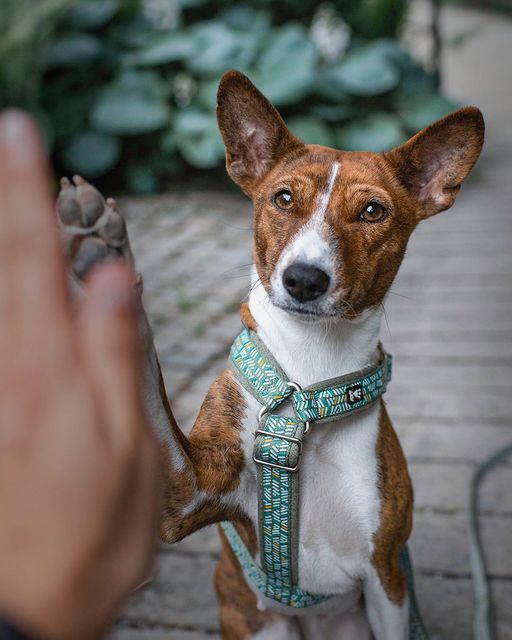Basenji puppies
Male and Female Basenji Puppies Available
Basenjis are unique, charming, and independent dogs known for their elegant appearance and quiet demeanor. These puppies are intelligent, energetic, and loyal, making them a great fit for active families or individuals who can provide them with the attention and exercise they need. Both male and female Basenji puppies are available, each with their own distinctive personality and playful spirit.
Basenji puppies for sale in virginia
Basenjis are small to medium-sized dogs with a sleek, muscular build and a striking appearance. Their short, fine coat comes in a variety of colors, including red, black, and brindle, often with white markings on their chest, paws, and tail tip. They are well-known for their curled tail and the distinctive wrinkling on their forehead, giving them an almost regal look.
Basenji puppies for sale near me
One of the most notable characteristics of Basenjis is their quiet nature. Often referred to as the “barkless dog,” Basenjis are known for their unique vocalizations, which include a yodel-like sound, rather than traditional barking. This makes them an excellent choice for people living in close quarters, like apartments, where noise can be a concern. However, they are still alert and will certainly let you know if something is amiss.

Basenji puppies for sale online
cheap Basenji puppies for sale
Basenji puppies are intelligent, but they can also be a bit independent and stubborn, so early training and socialization are important to ensure they grow into well-mannered adults. They enjoy regular exercise, like daily walks and play sessions, to satisfy their high energy levels. Due to their hunting instincts, they should always be kept in a securely fenced area when outdoors.
Both male and female Basenji puppies are available, each one ready to bring joy, loyalty, and a touch of elegance to your home.
Basenji Puppies: A Breeder’s Guide to Raising Exceptional Dogs
The Basenji, often referred to as the “barkless dog” of Africa, is a unique and ancient breed known for its intelligence, elegance, and independent spirit. For breeders, raising Basenji puppies requires a deep understanding of the breed’s characteristics, health needs, and proper socialization techniques. This guide provides essential insights for breeders aiming to nurture healthy, well-rounded Basenji puppies.
Breed Overview
Originating from Central Africa, Basenjis were bred for hunting and are known for their keen senses, agility, and silent tracking abilities. Their most distinctive trait is their lack of barking, though they communicate through unique yodel-like sounds known as “baroos.”
Physical Characteristics
- Size: Medium-sized, typically weighing 20-24 pounds and standing 16-17 inches tall.
- Coat: Short, fine, and low-shedding, with colors including red, black, tricolor, and brindle, often with white markings.
- Distinctive Features: Wrinkled forehead, tightly curled tail, and an alert, elegant stance.
Temperament and Personality
Basenjis are intelligent, independent, and affectionate with their families. They can be aloof with strangers but form strong bonds with their owners. Due to their hunting background, they have a high prey drive and are naturally curious and energetic.
Breeding Considerations
- Health Screening: Conduct thorough health checks, focusing on conditions such as Fanconi syndrome, progressive retinal atrophy (PRA), and hip dysplasia.
- Genetic Diversity: Carefully select breeding pairs to maintain genetic diversity and promote overall breed health.
- Temperament Assessment: Choose breeding pairs with stable, friendly temperaments to encourage well-adjusted puppies.
Raising Basenji Puppies
- Early Socialization: Expose puppies to various environments, people, and other animals to foster confidence and adaptability.
- Structured Routine: Establish a consistent feeding, play, and rest schedule to promote healthy development.
- Mental Stimulation: Provide toys and activities that challenge their intellect and satisfy their natural curiosity.
Training Tips
- Positive Reinforcement: Use treats, praise, and play to encourage desired behaviors.
- Consistency is Key: Establish firm, consistent boundaries, as Basenjis can be independent-minded.
- Patience: Their intelligence can lead to stubbornness, so patience and persistence are crucial.
Health and Nutrition
- Balanced Diet: Provide high-quality, breed-appropriate food to support growth and overall health.
- Regular Vet Check-ups: Schedule routine veterinary visits for vaccinations, deworming, and general health assessments.
- Exercise: Ensure daily physical activity to maintain a healthy weight and stimulate their active minds.
Grooming Needs
- Minimal Grooming: Their short coats require minimal grooming, but weekly brushing helps keep their coat healthy.
- Dental Care: Regular teeth brushing is essential for dental health.
- Clean Ears and Trim Nails: Regularly check and clean their ears and trim nails to avoid infections or discomfort.
Preparing Puppies for New Homes
- Health Documentation: Provide new owners with comprehensive health records, vaccination details, and microchip information.
- Guidance: Offer advice on training, diet, and care to help new owners transition smoothly.
- where to buy
Basenji Puppies: A Breeder’s Guide to Raising Exceptional Dogs
The Basenji, often referred to as the “barkless dog” of Africa, is a unique and ancient breed known for its intelligence, elegance, and independent spirit. For breeders, raising Basenji puppies requires a deep understanding of the breed’s characteristics, health needs, and proper socialization techniques. This guide provides essential insights for breeders aiming to nurture healthy, well-rounded Basenji puppies.
Breed Overview
Originating from Central Africa, Basenjis were bred for hunting and are known for their keen senses, agility, and silent tracking abilities. Their most distinctive trait is their lack of barking, though they communicate through unique yodel-like sounds known as “baroos.”
Physical Characteristics
- Size: Medium-sized, typically weighing 20-24 pounds and standing 16-17 inches tall.
- Coat: Short, fine, and low-shedding, with colors including red, black, tricolor, and brindle, often with white markings.
- Distinctive Features: Wrinkled forehead, tightly curled tail, and an alert, elegant stance.
Temperament and Personality
Basenjis are intelligent, independent, and affectionate with their families. They can be aloof with strangers but form strong bonds with their owners. Due to their hunting background, they have a high prey drive and are naturally curious and energetic.
Breeding Considerations
- Health Screening: Conduct thorough health checks, focusing on conditions such as Fanconi syndrome, progressive retinal atrophy (PRA), and hip dysplasia.
- Genetic Diversity: Carefully select breeding pairs to maintain genetic diversity and promote overall breed health.
- Temperament Assessment: Choose breeding pairs with stable, friendly temperaments to encourage well-adjusted puppies.
Raising Basenji Puppies
- Early Socialization: Expose puppies to various environments, people, and other animals to foster confidence and adaptability.
- Structured Routine: Establish a consistent feeding, play, and rest schedule to promote healthy development.
- Mental Stimulation: Provide toys and activities that challenge their intellect and satisfy their natural curiosity.
Training Tips
- Positive Reinforcement: Use treats, praise, and play to encourage desired behaviors.
- Consistency is Key: Establish firm, consistent boundaries, as Basenjis can be independent-minded.
- Patience: Their intelligence can lead to stubbornness, so patience and persistence are crucial.
Health and Nutrition
- Balanced Diet: Provide high-quality, breed-appropriate food to support growth and overall health.
- Regular Vet Check-ups: Schedule routine veterinary visits for vaccinations, deworming, and general health assessments.
- Exercise: Ensure daily physical activity to maintain a healthy weight and stimulate their active minds.
Grooming Needs
- Minimal Grooming: Their short coats require minimal grooming, but weekly brushing helps keep their coat healthy.
- Dental Care: Regular teeth brushing is essential for dental health.
- Clean Ears and Trim Nails: Regularly check and clean their ears and trim nails to avoid infections or discomfort.
Preparing Puppies for New Homes
- Health Documentation: Provide new owners with comprehensive health records, vaccination details, and microchip information.
- Guidance: Offer advice on training, diet, and care to help new owners transition smoothly.
- Socialization Tips: Encourage continued socialization to help puppies adjust to their new environment.
Conclusion
Breeding and raising Basenji puppies is a rewarding journey that requires dedication, knowledge, and passion. By focusing on health, socialization, and proper training, breeders can ensure their puppies grow into well-balanced, healthy adults. The result is not only a lineage of exceptional Basenjis but also the joy of seeing these intelligent and elegant dogs thrive in loving homes.
where to buy Basenji puppies
- Socialization Tips: Encourage continued socialization to help puppies adjust to their new environment.



Reviews
There are no reviews yet.